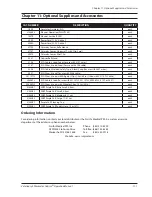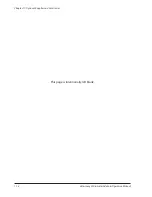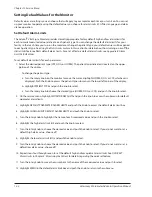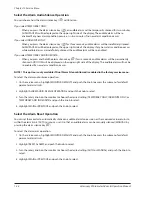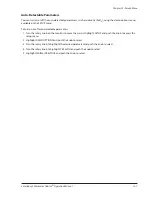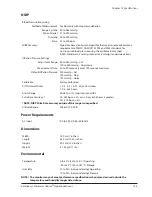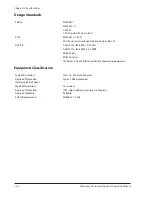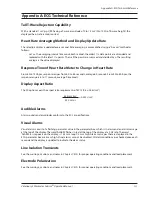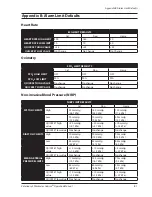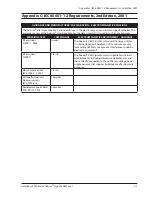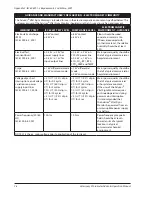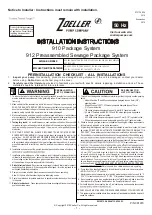
Appendix A: ECG Technical Reference
Veterinary 3 Parameter Advisor
®
Operation Manual
A-1
Tall T-Wave Rejection Capability
With a standard 1 mV p-p QRS having a T-wave amplitude of 0 to 1.2 mV (0 to 120% of R-wave height), the
displayed heart rate remains correct.
Heart Rate Averaging Method and Display Update Rate
The rate digit display is updated every second. Rate averaging is accomplished using a “box car” method as
follows:
Let
•
n
= the averaging interval 8 seconds. Each second, the oldest 1/
n
data points are discarded and
replaced with the latest 1/
n
points. Then, all the points are summed and divided by
n
. The resulting
average is the value displayed.
Response Time of Heart Rate Meter to Change in Heart Rate
From 80 to 120 bpm, response ranges from 6.0 to 6.0 seconds, average 6.0 seconds. From 40 to 80 bpm, the
response range is 8 to 11 seconds, average 9.6 seconds.
Display Aspect Ratio
The 2X option meets the aspect ratio requirements of EC13 (0.4± 0.08 s/mV).
Audible Alarms
Alarm sounds and amplitudes conform to the EC-13 specifications.
Visual Alarms
Visual alarms consist of a flashing parameter value in the parameter box, which is in alarm and an alarm message
at the top of the display. The word ‘ALARM’ flashes in red at the top of the display at a 2 Hz rate. The word
‘ALARM,’ as it appears on the display, is 15.3 mm long X 3 mm high. Alarm messages that are displayed in the
ECG parameter box are 3 mm high. Visual alarms cannot be disabled. All alarm conditions are checked once each
second and the display is updated to indicate the alarm status.
Line Isolation Transients
See the warnings, cautions, and notes in
Chapter 7: ECG
for proper operating conditions and lead placement.
Electrode Polarization
See the warnings, cautions, and notes in
Chapter 7: ECG
for proper operating conditions and lead placement.
Appendix A: ECG Technical Reference
8.55 mm/mV
25.0 mm/s
= 0.342 s/mV

